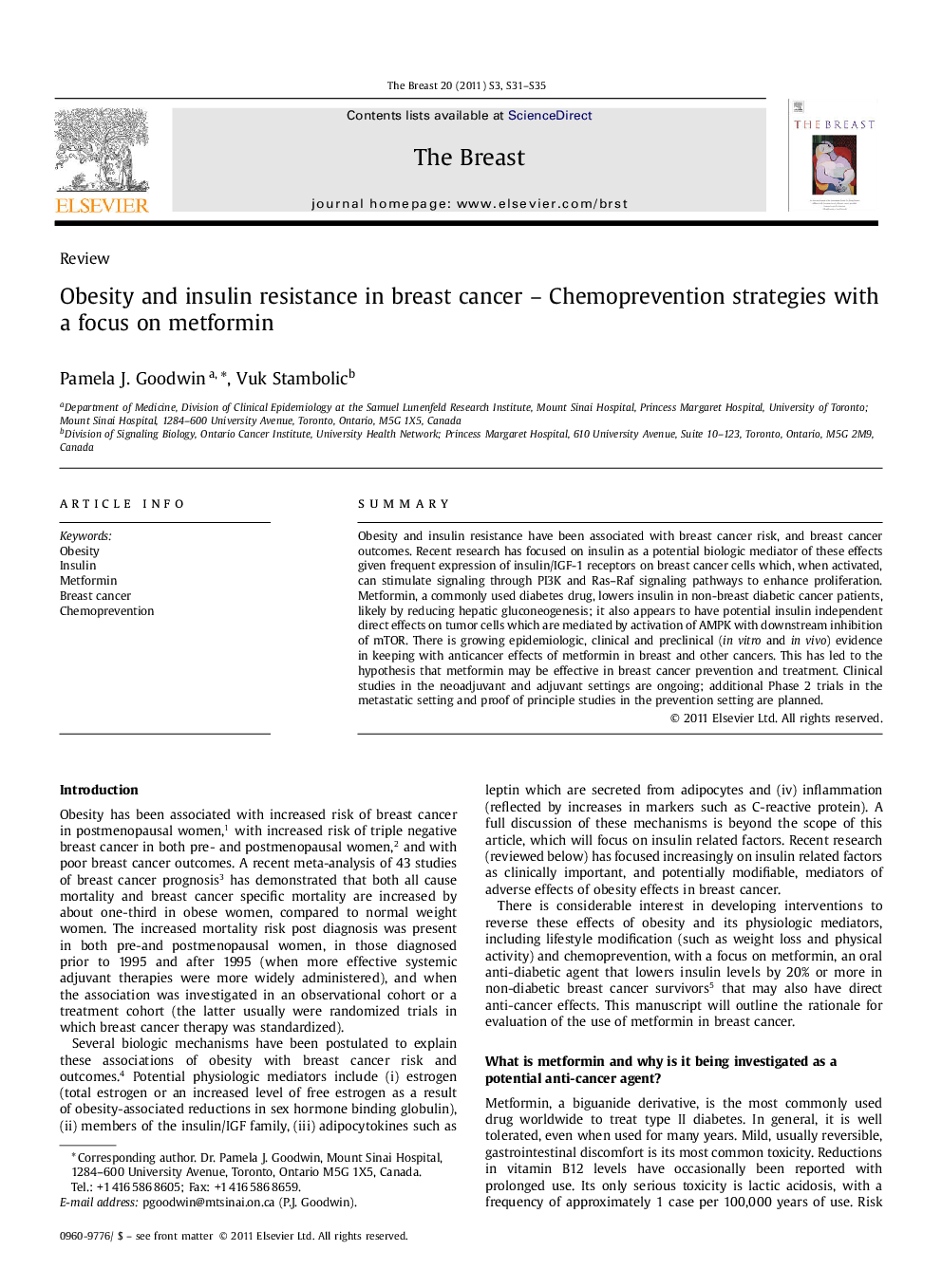| Article ID | Journal | Published Year | Pages | File Type |
|---|---|---|---|---|
| 3909150 | The Breast | 2011 | 5 Pages |
SummaryObesity and insulin resistance have been associated with breast cancer risk, and breast cancer outcomes. Recent research has focused on insulin as a potential biologic mediator of these effects given frequent expression of insulin/IGF-1 receptors on breast cancer cells which, when activated, can stimulate signaling through PI3K and Ras-Raf signaling pathways to enhance proliferation. Metformin, a commonly used diabetes drug, lowers insulin in non-breast diabetic cancer patients, likely by reducing hepatic gluconeogenesis; it also appears to have potential insulin independent direct effects on tumor cells which are mediated by activation of AMPK with downstream inhibition of mTOR. There is growing epidemiologic, clinical and preclinical (in vitro and in vivo) evidence in keeping with anticancer effects of metformin in breast and other cancers. This has led to the hypothesis that metformin may be effective in breast cancer prevention and treatment. Clinical studies in the neoadjuvant and adjuvant settings are ongoing; additional Phase 2 trials in the metastatic setting and proof of principle studies in the prevention setting are planned.
